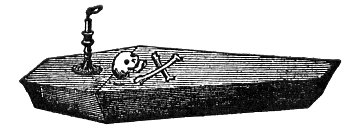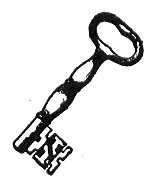Footnotes
184:1 The regular officers of a Past Masters’ Lodge correspond exactly with those of a Lodge of Master Masons.
The officers of a Chapter take rank in a Past Masters’ Lodge as follows, viz.: the High Priest as Master; the King as Senior Grand Warden; the Scribe as .Junior Grand Warden: the Treasurer and Secretary occupy the corresponding stations; the Principal Sojourner as Senior Deacon; the Royal Arch Captain as Junior Deacon, and the Tyler at his proper station.
191:1 The Giblemites, or, as they are called in Scripture, the Giblim, were inhabitants of the city and district of Gebal, in Phoenicia, near Mount Lebanon, and were. therefore, under the dominion of the King of Tyre. The Phœnician word “gibal,” which makes “giblim” in the plural, signifies a mason or stone squarer. In the Second Book of Kings, v. 17, 18, we read that “the King commanded, and they brought great stones, costly stones, and hewed stones, to lay the foundation of the house. And Solomon’s builders and Hiram’s builders did hew them, and the stone squarers.” which last word is, in the original, giblim. Gesenius says that the inhabitants of Gebal were seamen and builders, and Sir William Drummond asserts that “the Gibalim were Master Masons, who put the finishing hand to Solomon’s Temple.” In this sense the word is also used in the Book of Constitutions, which records that John de Spoulee, who, as one of the deputies of Edward III., assisted in rebuilding Windsor Castle, was called the “Master of the Ghiblim.” The Giblim, or the Giblimites, were, therefore, stone-squarers or Master Masons.–Book of the Chapter, p. 56.
196:1 See Mackey’s “Book of the Chapter.”
196:2 The chief object of this Degree In the United States is to exemplify the necessity of government, and to enforce upon the minds of those who are called to govern, the importance of qualifying themselves for the skilful and efficient discharge of their duties. The ceremonies of the Degree extend to no great length; but they are such as strongly to impress upon the newly elected Master a sense of his own deficiencies in the matter of government, and the need he has of promptness and energy in preserving the discipline of the Society over which he is to preside. The process of conferring the Degree, teaching by practical illustration, is apparently grave, though withal rather amusing. After the Lodge is opened upon the Third Degree, the Master receives intelligence from without that some sudden emergency demands his presence in another place. He therefore resigns the chair, and desires the brethren to elect a successor. The new Master is placed in the chair; but from various causes, too long to be enumerated here, he finds himself utterly unable to keep order, when the old .Master reappears and kindly relieves him from his embarrassment, by teaching him how to command obedience; for it frequently happens that, in the plenitude of his power, a scrupulous compliance with his own ignorant and inopportune mandates has occasioned the very confusion which had appalled him.–Historical Landmarks, vol. ii. p. 128.
PAST MASTERS–An honorary Degree conferred on the W. (Worshipful) Master, at his installation into office. In this Degree, the necessary instructions p. 197 are conferred respecting the various ceremonies of the Order, such as installations, processions, the laying of corner-stones, etc. The ceremonies of the Degree, when properly conferred, inculcate a lesson of diffidence in assuming the responsibilities of an office without a due preparation for the performance of its duties.–Lexicon.
197:1 This portion of the second section of the Lecture on the Fifth Degree relates to the induction of candidates, and is not given in the Monitors. With the exception of this, the Lecture may be found in “Webb’s Monitor.”
199:1 A hat.
Next: Most Excellent Master, or Sixth Degree
Index

Moe is the founder of GnosticWarrior.com. He is a father, husband, author, martial arts black belt, and an expert in Gnosticism, the occult, and esotericism.

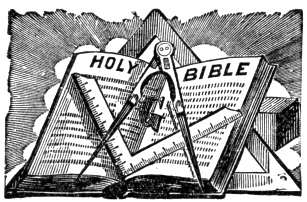
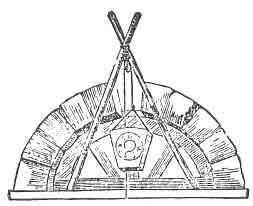

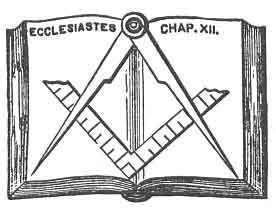
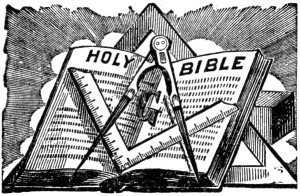
![How the Abbot Ceolfrid sent master-builders to the King of the Picts to build a church, and with them an epistle concerning the catholic Easter and the Tonsure [710 A.D.] | Book 5 | Chapter 20 How the Abbot Ceolfrid sent master-builders to the King of the Picts to build a church, and with them an epistle concerning the catholic Easter and the Tonsure [710 A.D.] | Book 5 | Chapter 20](https://www.gnosticwarrior.com/wp-content/plugins/contextual-related-posts/default.png)
